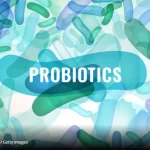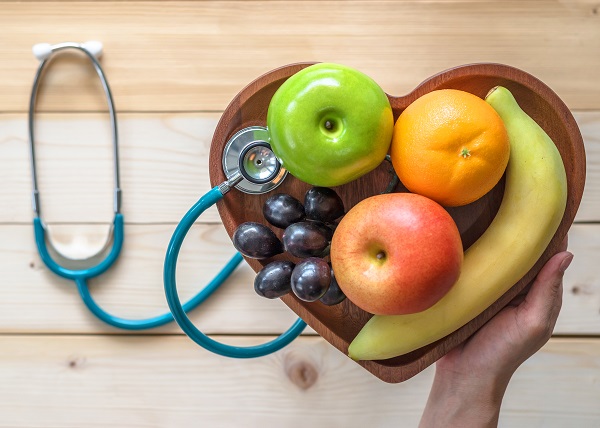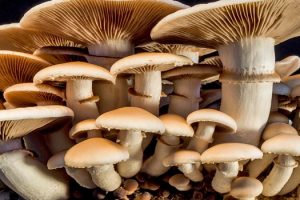A person’s body cannot make everything it needs to function. There are six essential nutrients that people need to consume through dietary sources to maintain optimal health.
The World Health Organization (WHO) indicates that essential nutrients support reproduction, good health and growth of a person. The WHO divides these essential nutrients into two categories: micronutrients and macronutrients.
Micronutrients are the nutrients that a person needs in small doses. Micronutrients consist of vitamins and minerals. Although the body only needs small amounts of these, a deficiency can deteriorate health.
Macronutrients are the nutrients that a person needs in more significant amounts. Macronutrients include water, protein, carbohydrates, and fats.
Read on to learn more about where to find these nutrients and why a person needs them.
The six essential nutrients are vitamins, minerals, proteins, fats, water, and carbohydrates.
Vitamins
A diet rich in vegetables, fruits, and lean protein should provide a person with enough vitamins.
Vitamins are micronutrients that offer a variety of health benefits, including:
stimulate the immune system
help prevent or delay certain types of cancer, such as prostate cancer
strengthen teeth and bones
help absorb calcium
keep skin healthy
help the body metabolize proteins and carbohydrates
help with blood health
help the brain and nervous system functionThere are 13 essential vitamins that nutritionists divide into two groups: fat-soluble and water-soluble.
Fat-soluble vitamins include:
Vitamin A
vitamin D
Vitamin E
vitamin KWater soluble vitamins include:
vitamin B-1 (thiamine)
vitamin B-12 (cyanocobalamin)
vitamin B-6
vitamin B-2 (riboflavin)
vitamin B-5 (pantothenic acid)
vitamin B-3 (niacin)
vitamin B-9 (folate, folic acid)
vitamin B-7 (biotin)
vitamin CUsually, a person who eats a diet rich in vegetables, fruits, and lean protein can get all the vitamins he needs from his food. However, people who eat fewer fruits and vegetables and those with digestive conditions may need a vitamin supplement to reduce or avoid a deficiency.
Proteins
They are responsible for supporting cells to carry out their daily work to regulate tissue function. They also help produce new cells, repair old cells, create hormones and enzymes, and keep the immune system functioning correctly—all essential tasks for cancer prevention.
Where do you get protein from? They must be present in all your meals through eggs, meats, red or white, fish and shellfish; vegetable proteins also come from grains and nuts.
protein-rich foods
Carbohydrates
They are the body’s gasoline, and they provide energy that provides cells, brain and blood with enough fuel to function correctly. Without carbohydrates, the body feels weak, without strength.
You can get them from bread, pasta, rice, fruits, and vegetables. Since carbohydrates are converted to glucose, be sure to choose the healthiest ones and discard those with refined sugars.
carbohydrate-rich foods
The water
Without it, most of the body’s processes would collapse. It supports the transport of nutrients, circulation, digestion, and elimination of toxins and regulates body temperature, which is vital to keeping healthy. Eight glasses of water a day keep diseases at bay.
woman drinking water
Fats
The great misunderstood of the food chain, fats are necessary for the production of cells and hormones and helping vitamins to move through the body.
Its bad reputation comes from excess fat concentration, as the body converts excess calories into fat. However, a healthy level of fat helps you absorb vitamins A, D, E, and K, all of which are fat-soluble.
New call-to-action
Instead of saturating your cholesterol or triglyceride levels with fried foods and processed, just be sure to consume the “good” or monounsaturated fats found in nuts, avocados, and fish like salmon or mackerel foods.
avocado and fish nuts
Vitamins and minerals
What are the essential nutrients? Who are the kings of nutrition? Vitamins are essential for the body’s metabolism, making them participate in different processes, such as those that allow good vision, strong bones, and growing hair.
For their part, minerals help regulate the proper functioning of tissues and systems. Potassium, for example, helps muscles function, while calcium takes care of bones and teeth.
Foods rich in vitamins and minerals When we think of the term healthy, we associate it with several elements within which exercise and good eating habits are almost mandatory in our lifestyle; But have you asked yourself what it takes to stay healthy?
Like air and water, food is essential for life. However, choosing it is not easy: it is not only the flavour or where it was prepared, with what ingredients it was made but how much good it does our body.
When reviewing the bibliography, you come across phrases like “you must eat healthy to have a healthy life, to prevent diseases and get more performance,” but how many of you manage to find answers? Finding the appropriate information is very complex in this age, where your close people, co-workers, celebrities on social networks, and even your neighbours believe they are experts on the subject.
The most important thing is to start because there are five nutrients that your body needs to function correctly. According to the World Health Organization (WHO), they are grouped into carbohydrates, proteins, fats, water and vitamins and minerals.
All are of vital importance, and their consumption will depend on the requirements of each individual. Next, I will give you a brief guide and explanation of what each is and how you should consume them.
CARBOHYDRATES: (pasta, banana, potato, corn, bread, fruits) are our primary energy source, representing between 45 and 65% of it. It is important to explain something: the body works with energy, and the easiest way, and not necessarily the best, to achieve it is through carbohydrates (mainly sugars). For this reason, I recommend limiting the consumption of sugar and even removing it from your diet, and this will force your body to metabolize the nutrients you eat so that they do not turn into fat by having more reserves than energy consumption.
PROTEINS: (meat, chicken, fish, egg) essential to build, repair and maintain tissue. Those of animal origin have all the essentials, but vegetables lack some essential amino acids. Eye! Protein consumption is significant; however, the excess can have repercussions at the kidney level, especially in older ages. Remember that obtaining energy from proteins is more complex for our body. Therefore the consumption of protein or protein-based diets becomes an alternative for those who want to lose weight.
FATS: there are different kinds. The saturated ones (firm at room temperature) are not recommended since their digestion is more complex and represents long-term deposits of fat that are harmful to our health. Unsaturated (liquid) have properties that help our health and are found in olives, walnuts, sunflowers and fish. The consumption of fats is essential since they are essential for cell growth in the skin condition and are also an essential reserve of vitamins such as K, A, D, and E. They are also the second most important source of energy. For this reason, if you do not consume sugar, you force the body to seek the required energy through fat metabolism.

















Add Comment